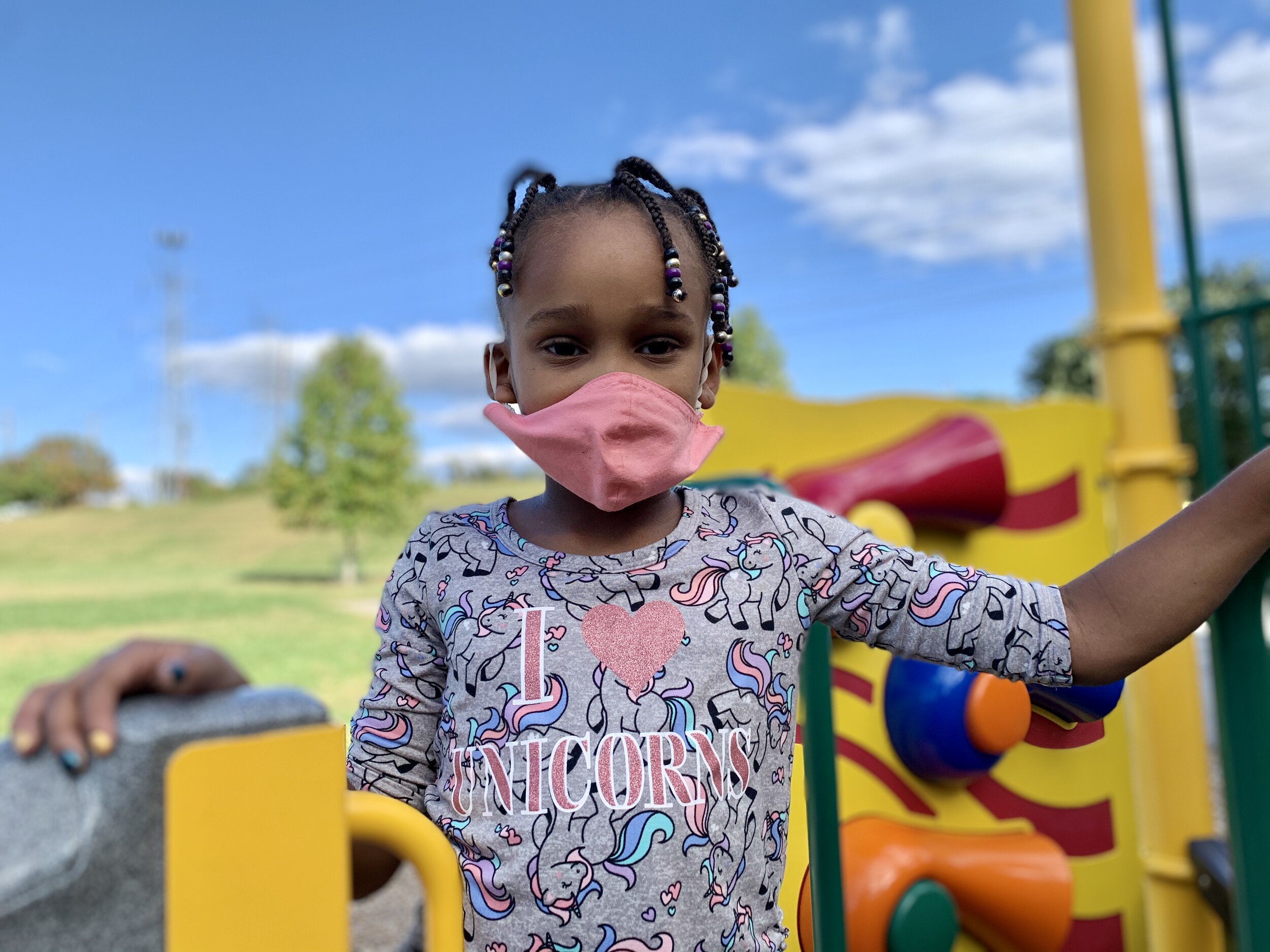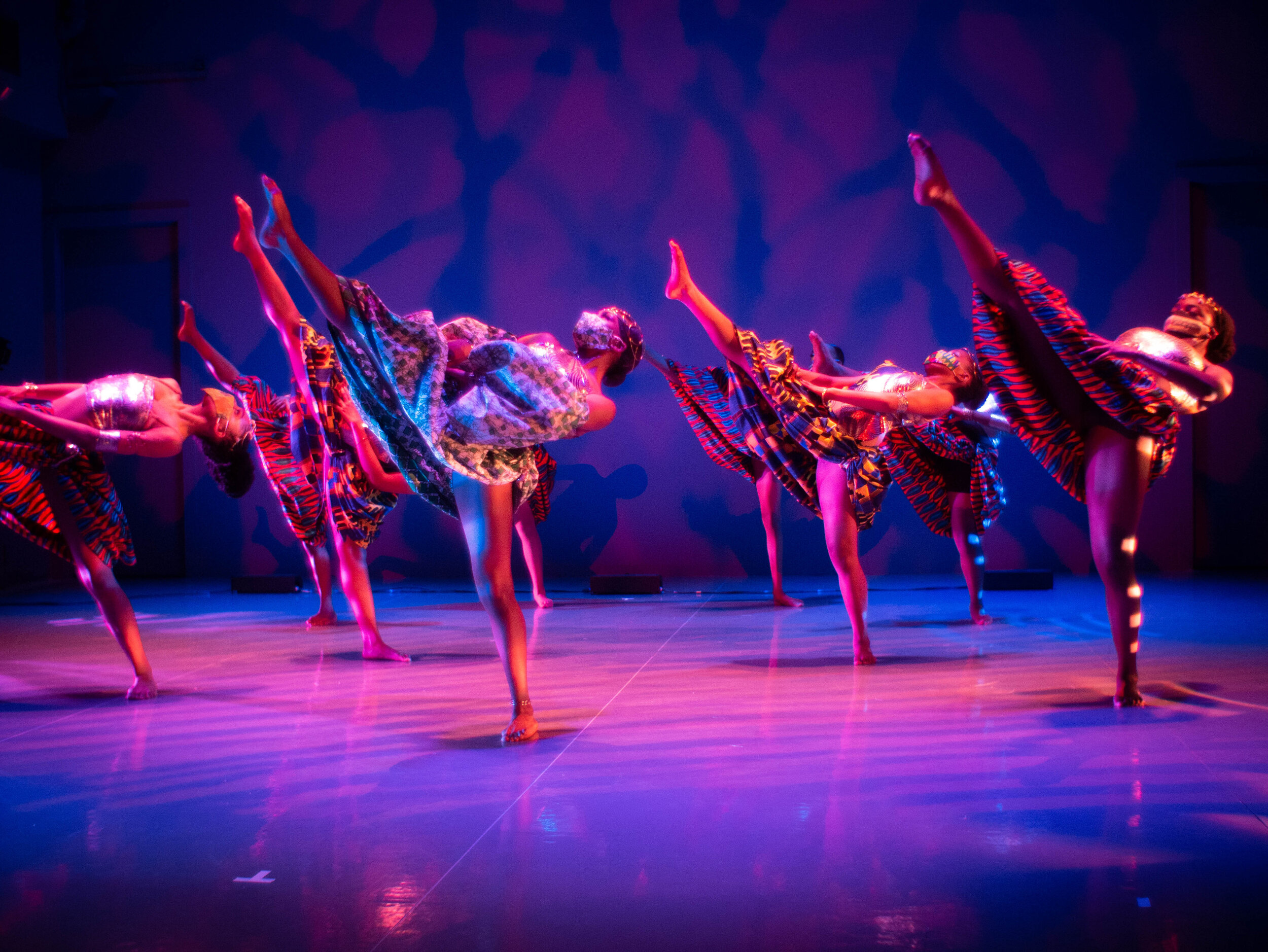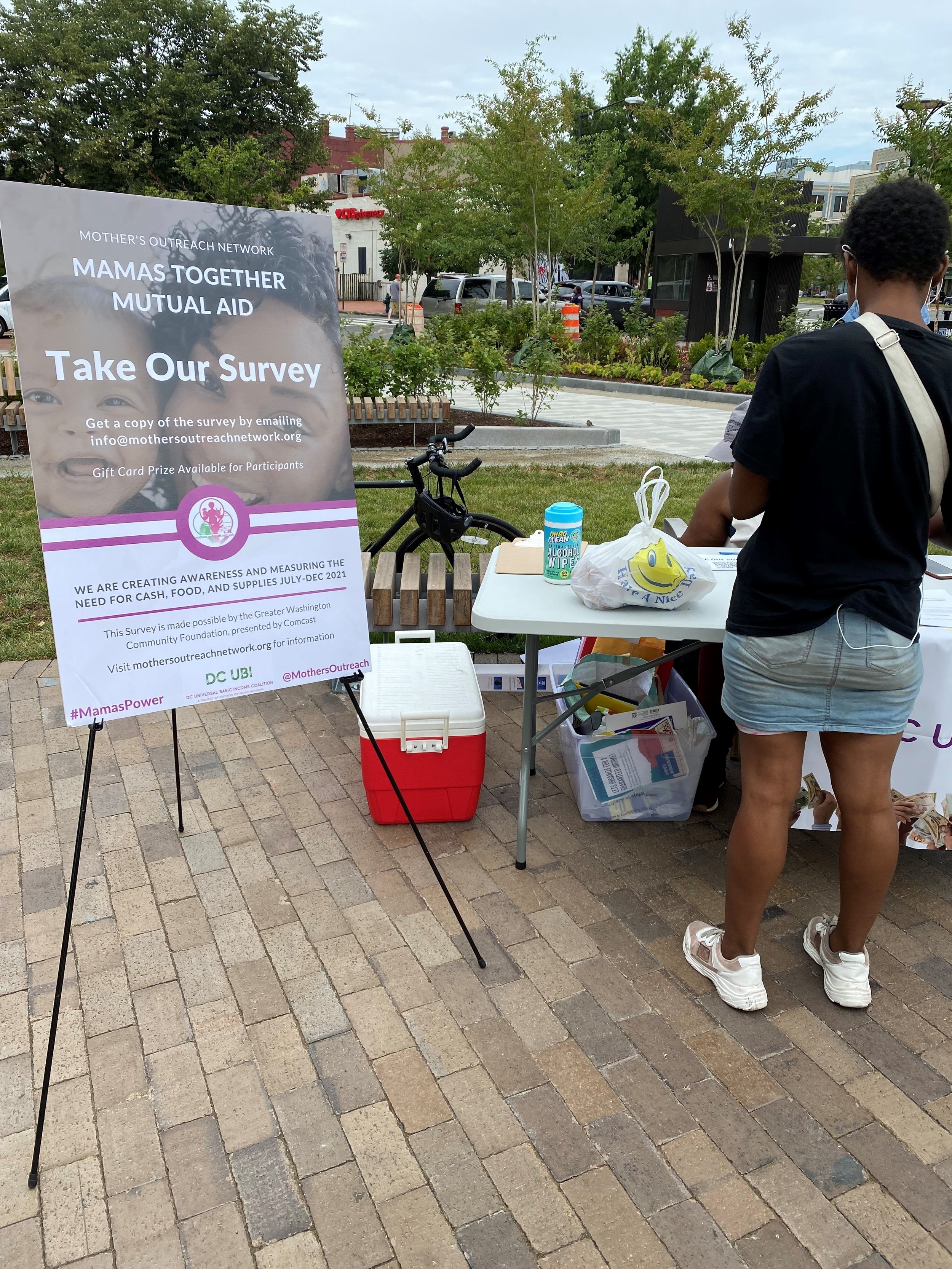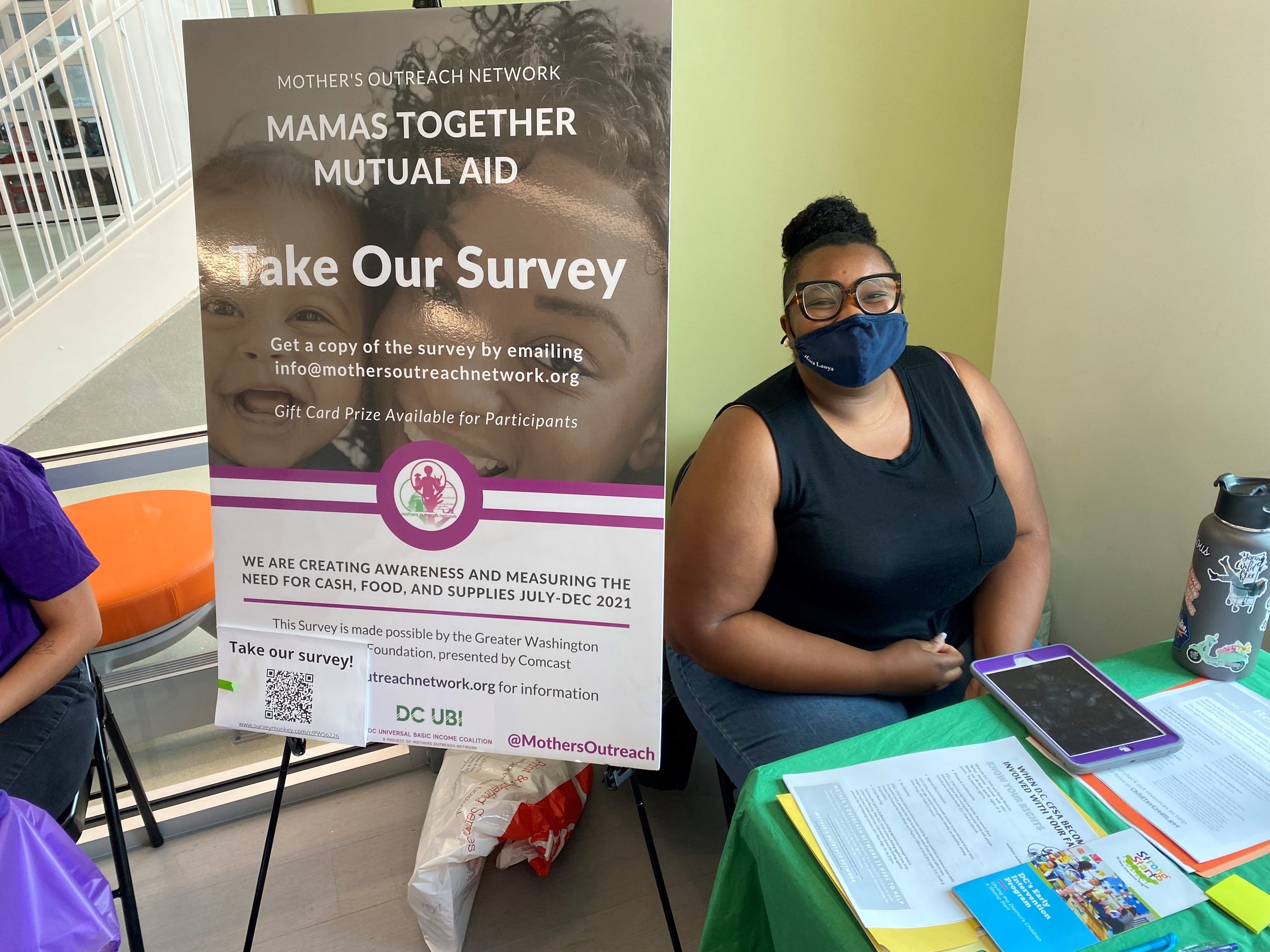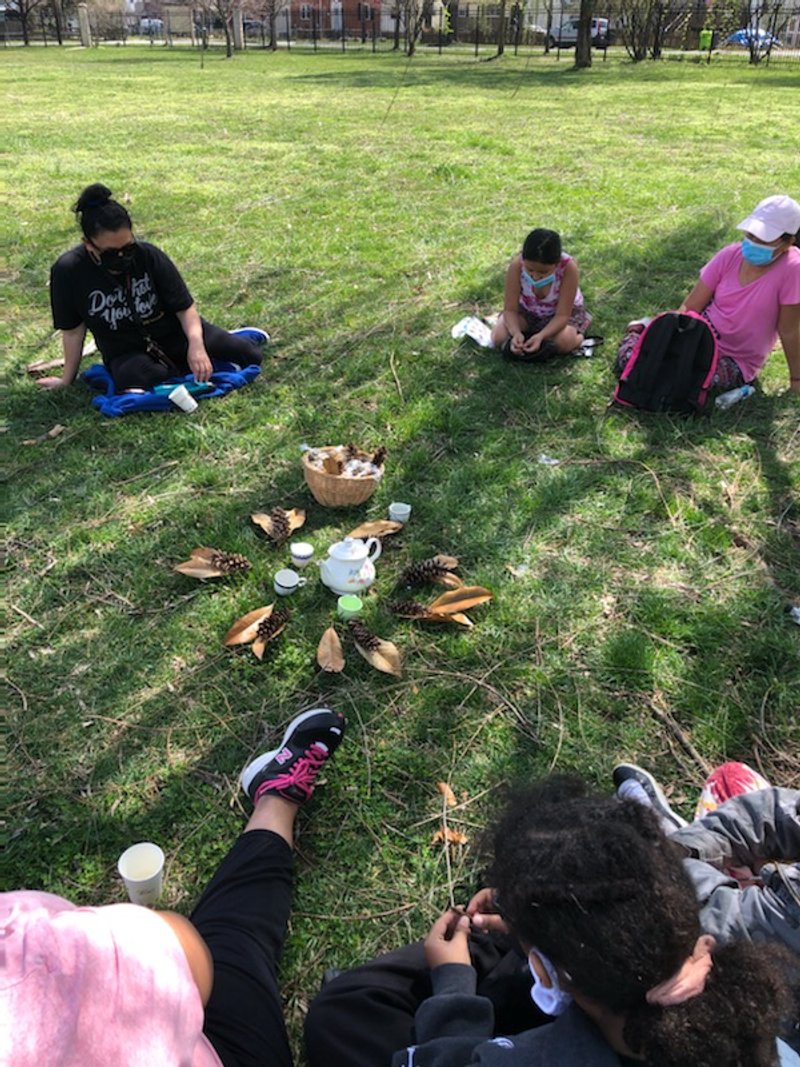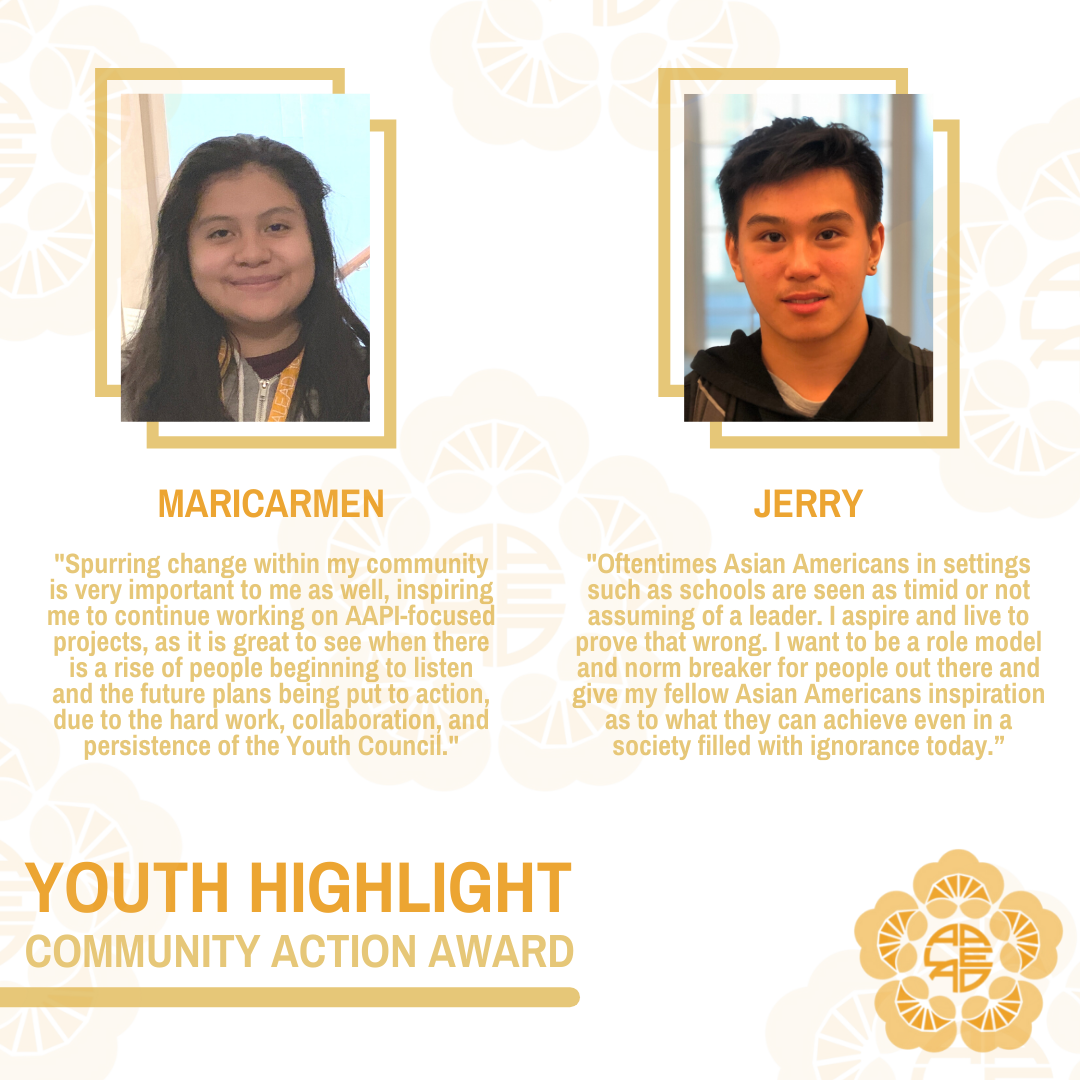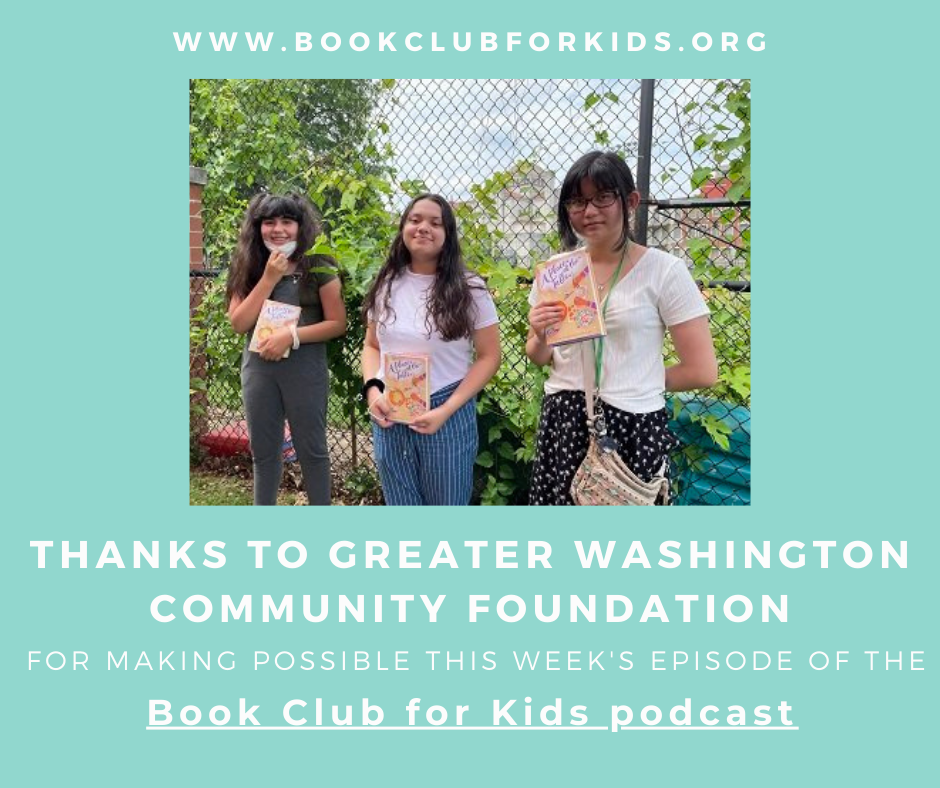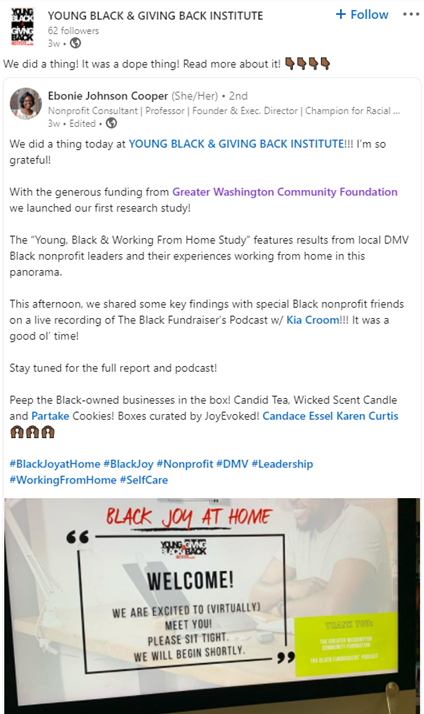The Greater Washington Community Foundation is excited to announce close to $1.1 million in grants awarded through it’s Sharing Community Funds this past cycle.
The Sharing Community Funds bring together donors who share our passion for building more equitable, just, and thriving communities. With expert facilitation by Community Foundation staff, donors join together to learn first-hand about the challenges facing our community. Thanks to the generosity of this growing community of givers, together we discover and invest in visionary nonprofits working on the frontlines of our region’s most pressing needs.
See below for a complete list of our nonprofit partners for 2022.
2022 Sharing DC Nonprofit Partners
-
Dreaming Out Loud to create economic opportunity for DC’s marginalized communities through creating a healthy, equitable food system by driving a new framework for sustainable economic development for Black and Brown DC residents, food entrepreneurs, and farmers in our region.
Empower DC to enhance, improve and promote the self-advocacy of low- and moderate-income DC residents through grassroots organizing, popular education style training, leadership development, and member-led campaigns strategically designed to influence pressing social issues impacting our constituency.
-
Ayuda to advocate for low-income immigrants through direct legal, social and language services, training, and outreach in the Washington DC metropolitan area.
Bread for the City to help Washington, DC residents living with low income to develop their power to determine the future of their own communities by providing food, clothing, medical care, and legal and social services, to reduce the burden of poverty, in addition to community organizing and public advocacy.
First Shift to help working parents in low wage jobs assert their workplace rights to prevent job loss by focusing on legal issues including paid sick time; family medical leave; D.C. paid family leave benefits; workplace discrimination based on pregnancy, family responsibilities, or domestic violence.
SMYAL to support and empower lesbian, gay, bisexual, transgender and questioning (LGBTQ) youth in the Washington, DC metropolitan region. SMYAL’s goal is to create opportunities for LGBTQ youth to build self-confidence, develop critical life skills, and engage their peers through service and advocacy.
2022 Sharing Prince George’s Nonprofit Partners
-
Court Appointed Special Advocate (CASA) Prince George’s County to partner with the juvenile court to improve the lives of children living in foster care who have suffered from abuse and neglect. With a strong commitment to diversity, CASA/ Prince George’s County trains and supervises volunteers from the community who advocate for the best interest of children, recognizing and respecting each child’s individual needs. By providing a voice to children in the foster care system, it’s goal is to help children and promote the timely placement of those they serve in safe, permanent homes.
CASA de Maryland, Inc. to create a more just society by building power and improving the quality of life in working class and immigrant communities. Their vision is for a future in which immigrants stand in their own power, their families live free from discrimination and fear, and diverse communities thrive as they work with partners to achieve full human rights for all.
Community Crisis Services Inc. to provide compassionate crisis support through its hotline, safe-shelter programs and information and referral services.
Hillside Work Scholarship Connection to provide compassionate crisis support through its hotline, safe-shelter programs and information and referral services.
Community and Family Youth Services (CAFY) to guide child crime victims in Prince George’s County through the process of testifying in court. CAFY empowers victims and their families to gain the confidence to help hold offenders accountable, restore families and educate the community. They are the designated victim services provider for the four largest law enforcement departments in Prince George’s County. Their mission is “to embrace, educate, and empower those impacted, affected or harmed by crime or trauma on their journey to justice and healing”. All victims are embraced – irrespective of age, gender, religion, ethnic background or sexual orientation.
2022 Sharing Montgomery Nonprofit Partners
-
Black and Brown Coalition to engage underserved families to advocate for federal, state, and local supports of intensive and research-based academic interventions targeted toward students with the greatest need.
Montgomery County Food Council to build a more resilient, sustainable, and equitable local food system. Its leadership helps the many county food providers strategically work together to better serve the 100,000+ residents who do not know where their next meal will come from.
-
Asian American LEAD for academic support and enrichment for children of low‐income Asian American families.
BlackRock Center for the Arts to support arts access celebrating diversity, along with COVID-19 response to address community need for food and other essentials through the new Consolidation Hub.
Care for Your Health for culturally sensitive in-home health care for seniors.
Career Catchers to provide personalized employment and job skills counseling for low-income and chronically under-employed residents.
Community Health and Empowerment through Education and Research (CHEER) to fund healthy food delivery and other health supports to people with diabetes and those severely hit by COVID-19.
CollegeTracks to improve college access and retention rates for students at risk of not attending college, primarily first-generation, low-income, minority, and immigrant youth.
Community Bridges, Inc to empower girls in elementary, middle and high schools through leadership development, college and career readiness, and family support and mentoring.
Crittenton Services Greater Washington to help teenage girls achieve academic and personal success through virtual and school-based cohort programs.
EveryMind to provide community-based mental health and social services, life-saving crisis prevention and intervention work, service coordination for veterans, and community education and advocacy.
Future Link to provide career counseling, mentoring, tutoring, academic advising, scholarships and internships to help connect disadvantaged youth to post-secondary educational opportunities.
Generation Hope to mentor and provide scholarships for teen parents pursuing college degrees. It also delivers early childhood resources, so scholars children begin kindergarten with a strong academic foundation.
Horizons Greater Washington supports students from low-income families with academic, artistic and athletic activities for nine years, from kindergarten through eighth grade.
Identity, Inc to serve Latino and other historically underserved youths and their families. Identity helps youths develop social and emotional skills, excel in school, and get ready to enter the workforce.
IMPACT Silver Spring to fund community-building work for a racially and economically equitable community in which people can take collaborative action to enact lasting change.
Interfaith Works to provide emergency assistance and counseling, vocational services, food distributions, clothing, and shelter for those experiencing homelessness.
Latino Student Fund to provide year-round, out-of-school programs to ensure a strong academic foundation for underserved pre-K through 12th grade students.
Mary's Center for health care, education, social services, and ongoing COVID-19 response that builds a healthier and stronger community.
Mobile Medical Care, Inc to support health care, medications, and ongoing COVID-19 supports for low-income, homeless, uninsured, and underinsured individuals including those with chronic health conditions.
Montgomery Housing Partnership, Inc to develop affordable rental housing and offer Community Life programs that support young children and their families at home, ultimately strengthening neighborhoods.
Montgomery Moving Forward to convene leaders from government, business, philanthropy, education, and nonprofits to solve complex problems facing the county. Through capacity building programs, MMF’s leaders advocate around pressing issues of economic opportunity and early childhood education.
National Alliance on Mental Illness of Montgomery County (NAMI MC) to provide comprehensive support, education, advocacy and public awareness to promote recovery for those affected by mental illness.
Nonprofit Montgomery to support local organizations with government relations, advocacy, strategic communications, financial management, metrics tracking, and cross-sector problem solving. With this support, grantees of Sharing Montgomery can access personalized support and connections to help deepen their impact.
Nonprofit Village to provide low-cost shared office space plus capacity building resources that help organizations launch and grow. With this support, grantees of Sharing Montgomery can connect with peers and gain supports to advance their work.
Rainbow Community Development Corporation to fund food security relief and other services including eviction and utility cutoff prevention, and temporary shelter, job search and resume assistance.
Red Wiggler Community Farm to support on-farm training and education for adults with developmental disabilities. Half of its organic produce is donated to low-income households throughout the county.
Shepherd's Table to provide breakfast, lunch and dinner to people experiencing food insecurity and provide free eye exams, eyeglasses, and eye treatment to those otherwise unable to access care.
Sheppard Pratt (formerly Family Services) for clinical health services, rehabilitation services, services to children youth and families, and community and family services such as Linkages to Learning and domestic violence supports.







